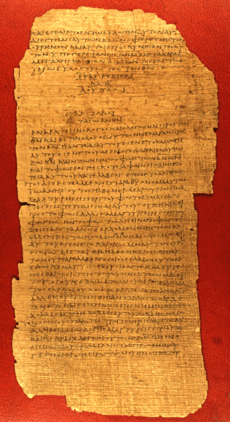Слово

Слово есть Логос; оно является мощью Бога и реализацией этой мощи, воплощенной в Христе, и им самим.
Приверженцы Логоса высвобождают энергии Слова в ритуале науки изреченного Слова. Именно через Слово Бог Отец-Мать сообщается с человечеством. Олицетворением Слова является Христос.
The Word and Vac
The first verse of the Gospel of John says, “In the beginning was the Word, and the Word was with God, and the Word was God.” This verse parallels the Hindu teachings on the cosmic Principle and Person of Vac (pronounced Vwahk; meaning literally “speech,” “word,” “voice,” “talk,” or “language”) as recorded in the Vedas, the earliest scriptures of Hinduism, probably composed c. 1500-1000 B.C.
The Hindu text Taittirya Brahmaa (Brahmaas are commentaries on the Vedas) says that “the Word, imperishable, is the Firstborn of Truth, mother of the Veda and hub of immortality.” Vac is called “the mother” of the Vedas because it is believed that Brahma revealed them through her power.
The Taya Maha Brahmaa teaches, “This, [in the beginning], was only the Lord of the universe. His Word was with him. This Word was his second. He contemplated. He said, ‘I will deliver this Word so that she will produce and bring into being all this world’” (XX, 14, 2).
Scholar John Woodroffe (pen name, Arthur Avalon) quotes John 1:1 and says:
These are the very words of Veda. Prajapatir vai idam ast: In the beginning was Brahman. Tasya vag dvitya ast; with whom was Vak or the Word (She is spoken of as second to Him because She is first potentially in, and then as Shakti issues from Him); Vag vai paramam Brahma; and the word is Brahman. Vak is thus a Shakti or Power of the Brahman.... This Shakti which was in Him is at the creation with Him, and evolves into the form of the Universe whilst still remaining what It is—the Supreme Shakti” who is “one with Brahman.”[1]
Hindu texts refer to Vac as the wife or consort of the Creator “who contains within herself all worlds.” Sarasvati, the consort of Brahma and goddess of language, speech, wisdom and art, is identified with Vac in the Mahabharata and later Hindu tradition. Quoting the Brahmaas, author Raimundo Panikkar writes that Vac “is truly ‘the womb of the universe.’ For ‘by that Word of his, by that self, he created all this, whatever there is.’”
Panikkar also notes that “Vac was before all creation, preexisting before any being came to be.... Vac is the life-giving principle within all beings.... She has a feminine characteristic of complementarity, a mediatorial role, and a certain feminine docility and obedience. She needs always to be uttered, by men, by Gods, or by the Creator himself.... [The Vedic Word] is ultimately as important as Brahman and, in a way that has to be properly understood, it is Brahman itself.”[2]
См. также
Источники
Pearls of Wisdom, vol. 31, no. 65, October 2, 1988.
